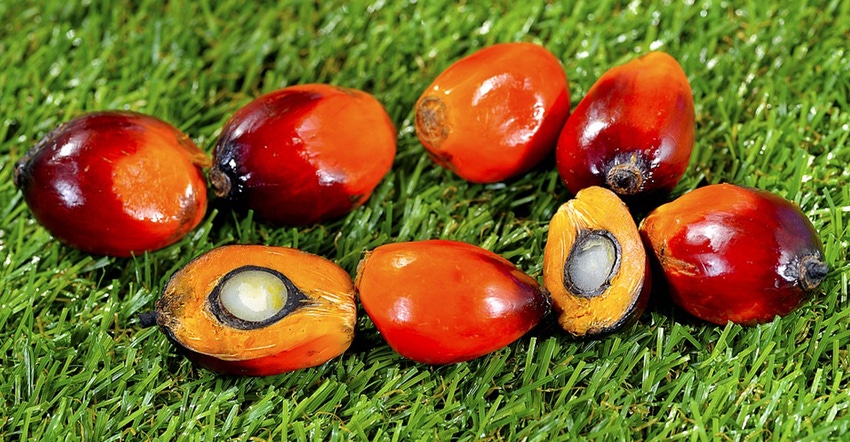BASF shifted its personal care portfolio to offer palm-based specialties for the cosmetics industry exclusively as certified sustainable per RSPO standards.
April 25, 2018

BASF shifted its personal care portfolio to offer palm-based specialties for the cosmetics industry exclusively as certified sustainable per Roundtable on Sustainable Palm Oil (RSPO) standards. The move was announced at its 3rd Palm Dialog event during the in-cosmetics Global exhibition in Amsterdam, April 17-19.
“This is an important milestone for the cosmetics industry’s progress towards sustainable palm—and some of our customers have already made the step,” said Xavier Susterac, senior vice president BASF Personal Care Europe.
BASF produces palm-based ingredients for cosmetic products, detergents and cleaning agents, as well as foods. Most palm oil products used by BASF are based on palm kernel oil and its derivatives and, to a lesser extent, on palm fruit oil.
Palm cultivation is linked to deforestation, loss of biodiversity and social conflicts in producing countries—mainly Indonesia and Malaysia, where 85 percent of the world’s palm oil is sourced.
Palm oil trees products significantly higher yields per hectare—four to 10 times more, per RSPO—compared to other oil seeds, such as sunflower and soybean, which reduces costs along with potential environmental damage caused by increased need for agricultural land.
Such considerations, combined with the functional benefits of palm oil and palm kernel oil across a range of categories including cosmetics, foods and household products, place palm oil products in high demand among product developers. In cosmetics, several functional ingredients derive from palm kernel oil, including surfactants, emulsifiers and emollients. In fact, RSPO reported 2 percent of the world’s palm oil products end up in cosmetics.
The decision to offer palm-based specialties only as certified in line with the Roundtable on Sustainable Palm Oil (RSPO) “Mass Balance” standard is the latest move in BASF’s initiative, “Time for Change.” The company has made a commitment to switch about 330 palm-based products to Mass Balance standard in 2018 globally.
Mass Balance is among RSPO’s supply chain models. Mass Balance standards foster the physical flow of certified, raw materials within the oleo-derivatives supply chain by allowing certified sustainable palm oil to be mixed with non-certified palm oil throughout the supply chain.
“By enhancing our IT processes, we are making it easier for our customers to change to [Mass Balance] ingredients,” said Isabella Tonaco, who is responsible for global sustainability palm products at BASF.
BASF has therefore committed itself to source only RSPO-certified sustainable palm kernel oil by 2020. However, currently less than 20 percent of the global supply of palm-based oils is available as certified sustainable.
In 2017, BASF purchased 153,000 metric tons of RSPO-certified palm kernel oil and traced almost 80 percent of its overall palm oil exposure of more than a half-million metric tons. The certified sustainable oil is 100 percent traceable and originates from 204 oil mills in Indonesia and Malaysia, according to the second BASF Palm Progress Report.
You May Also Like




.png?width=800&auto=webp&quality=80&disable=upscale)